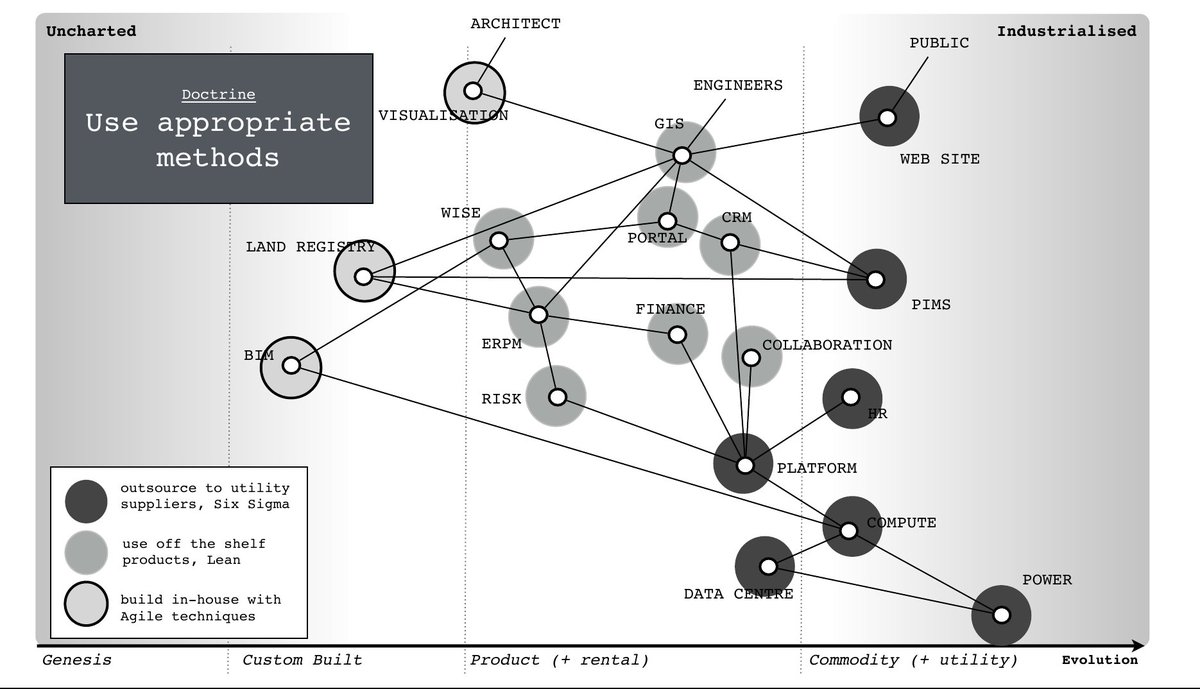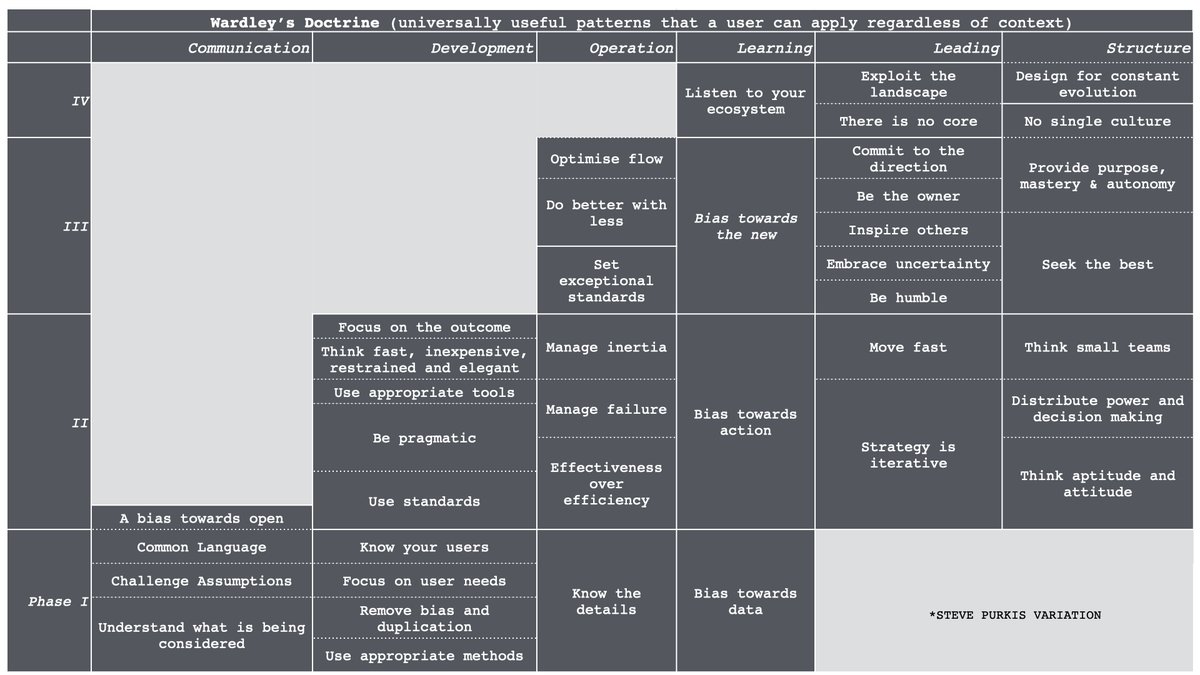
X : Who uses your maps?
Me : Different people and groups. It's creative commons, so there are no restrictions.
X : So, you don't know?
Me : People do tell me, it's in books etc. If they find it useful, it'll spread. If not, it doesn't deserve to.
X : But who?
Me : Shopify?
Me : Different people and groups. It's creative commons, so there are no restrictions.
X : So, you don't know?
Me : People do tell me, it's in books etc. If they find it useful, it'll spread. If not, it doesn't deserve to.
X : But who?
Me : Shopify?
https://twitter.com/jadacormier/status/1151280067391049728
X : But who else?
Me : All sorts of people. Why?
X : I need an example from my industry.
Me : Ah, if someone we know does this then we should do this? The 67% of generals bomb hills problem?
X : ?
Me : All sorts of people. Why?
X : I need an example from my industry.
Me : Ah, if someone we know does this then we should do this? The 67% of generals bomb hills problem?
X : ?
Me : You shouldn't map because others do, you should map if you find it useful. That's it.
X : But we want to know if it will be useful.
Me : Certainty before you try and explore an uncertain space you have little visiblity on? Try it for a day, if it doesn't help ... stop.
X : But we want to know if it will be useful.
Me : Certainty before you try and explore an uncertain space you have little visiblity on? Try it for a day, if it doesn't help ... stop.
X : We're thinking of building a platform, will it help with this?
Me : Are you thinking of building a platform because you read in some HBR article about other people building platforms?
X : Why does that matter?
Me : My heart sinks ...
Me : Are you thinking of building a platform because you read in some HBR article about other people building platforms?
X : Why does that matter?
Me : My heart sinks ...
... building a platform should be the end result of an understanding of your landscape, application of thought and a decision to play a certain type of game. You don't start with "let's build a platform" and then look for justification to your decision ...
... If you think maps are a tool to help you confirm what you've already decided then you misunderstand them. They're a mechanism to enable communication, challenge and learning based upon a premise that it's a good idea to look before you leap.
X : Can you prove that?
Me : Can I prove that looking at the landscape is useful? That situational awareness matters?
X : Yes
Me : No and that's not for me to do. There are other people looking into that question ... see @RoserPujadas1
Me : Can I prove that looking at the landscape is useful? That situational awareness matters?
X : Yes
Me : No and that's not for me to do. There are other people looking into that question ... see @RoserPujadas1
X : But you say that most of the economy runs on luck.
Me : There are outliers but most of us are playing a game blind chess. We don't even understand the board or the pieces.
X : So, any effect from maps could be luck?
Me : It could be. That's why I can't answer the question.
Me : There are outliers but most of us are playing a game blind chess. We don't even understand the board or the pieces.
X : So, any effect from maps could be luck?
Me : It could be. That's why I can't answer the question.
X : But how do you know if your map is right?
Me : All maps are wrong and imperfect by nature.
X : So, I don't see the point of them.
Me : That's ok. You should only use them if you find them useful.
Me : All maps are wrong and imperfect by nature.
X : So, I don't see the point of them.
Me : That's ok. You should only use them if you find them useful.
X : So, you don't know who uses them, you can't tell me the impact and they're wrong and imperfect - that's your pitch?
Me : Minus the pitch. It's all creative commons.
X : And the only reason why I should use them is I find them useful.
Me : Yep.
Me : Minus the pitch. It's all creative commons.
X : And the only reason why I should use them is I find them useful.
Me : Yep.
X : Mapping works on FOMO?
Me : Well, I think it's reasonable to say that some look at mapping because of that. Which is why you quickly need to work out whether it's useful to you or not.
X : How do you do that?
Me : Try it and compare to what you already use.
Me : Well, I think it's reasonable to say that some look at mapping because of that. Which is why you quickly need to work out whether it's useful to you or not.
X : How do you do that?
Me : Try it and compare to what you already use.
• • •
Missing some Tweet in this thread? You can try to
force a refresh






